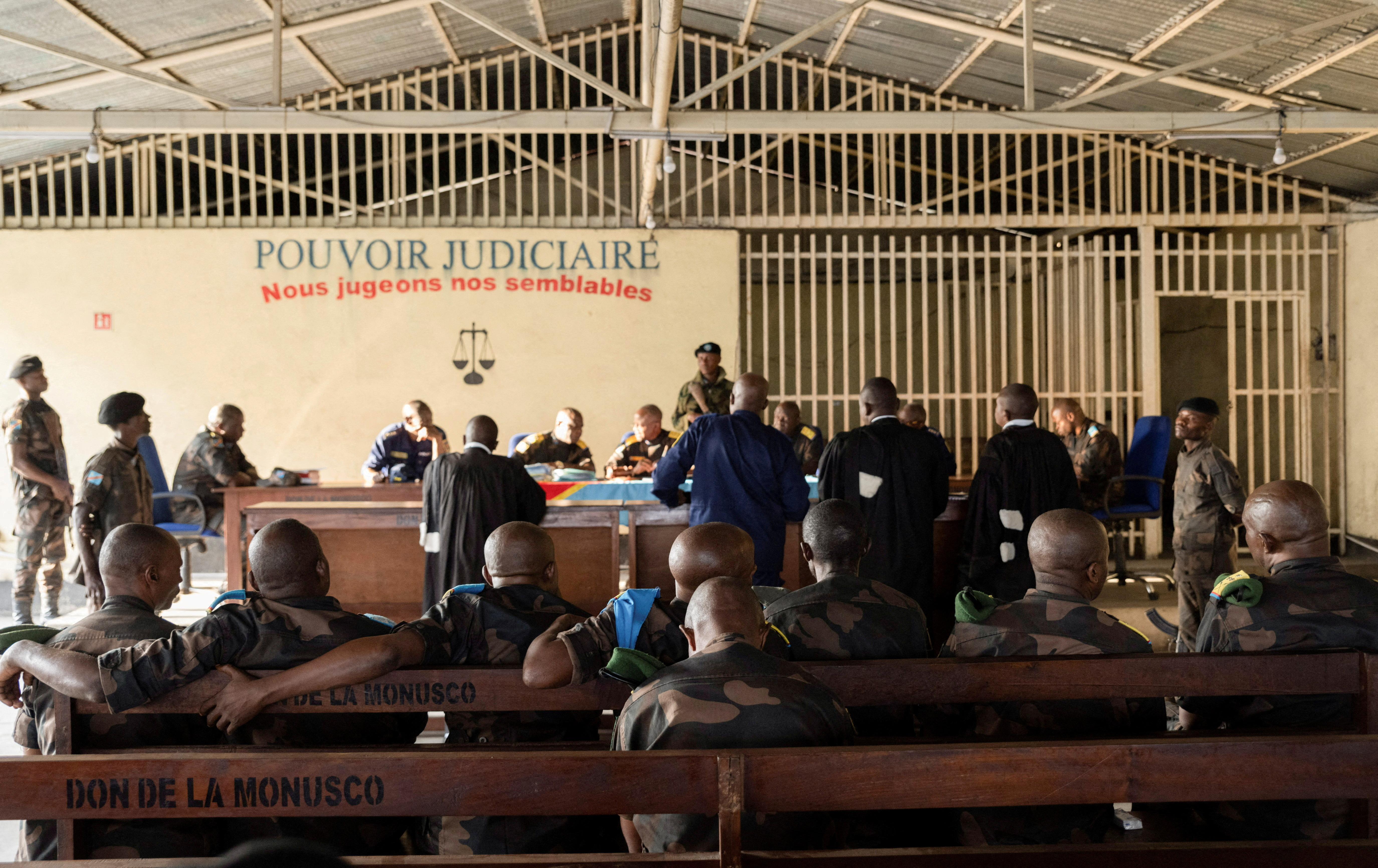
Soldiers from the DR Congo sentenced to death for escaping combat
A military tribunal in the Democratic Republic of the Congo has sentenced 25 soldiers to death for stealing and escaping from fights against M23 rebels, their attorney and an army spokesman announced on Thursday.
Over two years of combating the M23 insurrection and other militia warfare have left the Congolese army with about 2.7 million displaced within the province of North Kivu. Last week, the rebels made progress into strategically significant terrain.
Following their withdrawal from their positions in the province’s villages of Keseghe and Matembe, the army apprehended 27 soldiers on Tuesday. Reagan Mbuyi Kalonji, an army spokesman, said that the fugitives were discovered robbing stores in the neighboring village of Alimbongo.
According to Kalonji, they were arrested together with four of their wives who were residing in the hamlet and getting the plundered stuff.
They were brought before a military tribunal in Alimbongo on Wednesday, and the magistrate found 25 of them guilty of theft, evading the enemy, and disobeying orders, among other offenses, and sentenced them to death.
While the other four soldiers and their spouses were found not guilty, one soldier received a 10-year prison sentence.
All of the twenty-five, with the exception of one, entered a guilty plea.
Jules Muvweko, their attorney, declared he will appeal the decision.
The military of Congo has been severely inefficient during this crisis due to internal splits, a lack of resources, inadequate logistics, and widespread corruption in the nation.
According to army officers who spoke to Reuters, eight officers were given death sentences in May for cowardice and other offenses, indicating serious disorganization in the Congo’s military forces that has been impeding the campaign against M23.
In March, the Congo reinstated its moratorium on the death penalty, citing espionage and betrayal in ongoing hostilities as justifications.
Although the death penalty was put on hold in the nation in the early 2000s, it was never completely repealed.
All Categories
Recent Posts
Tags
+13162306000
zoneyetu@yahoo.com



